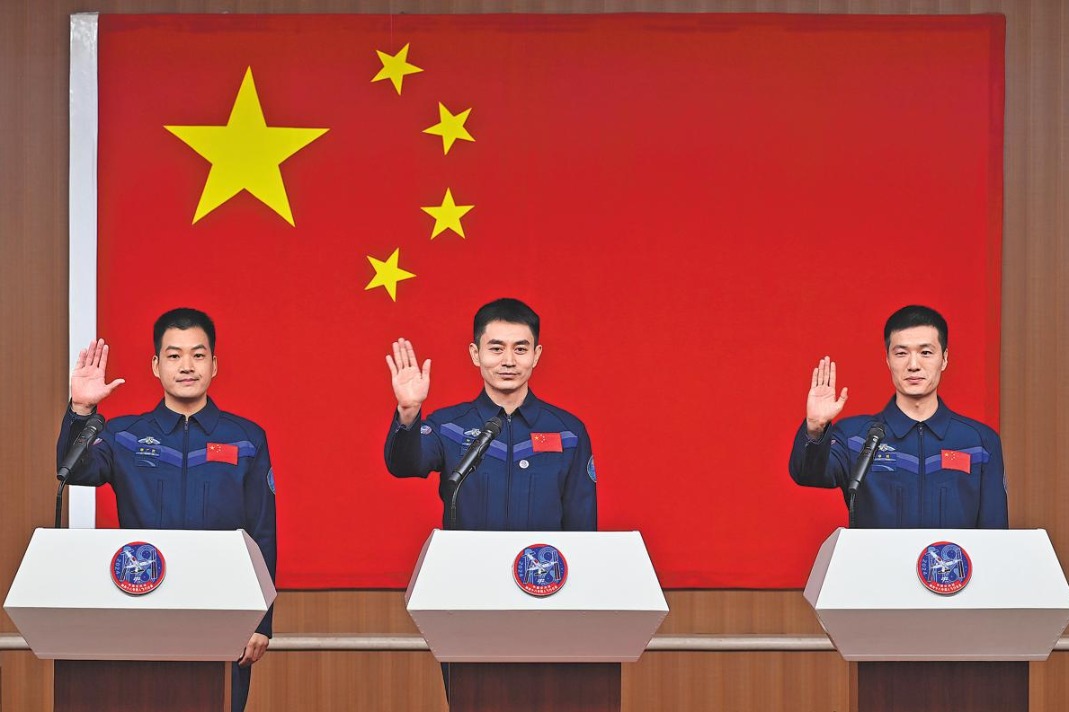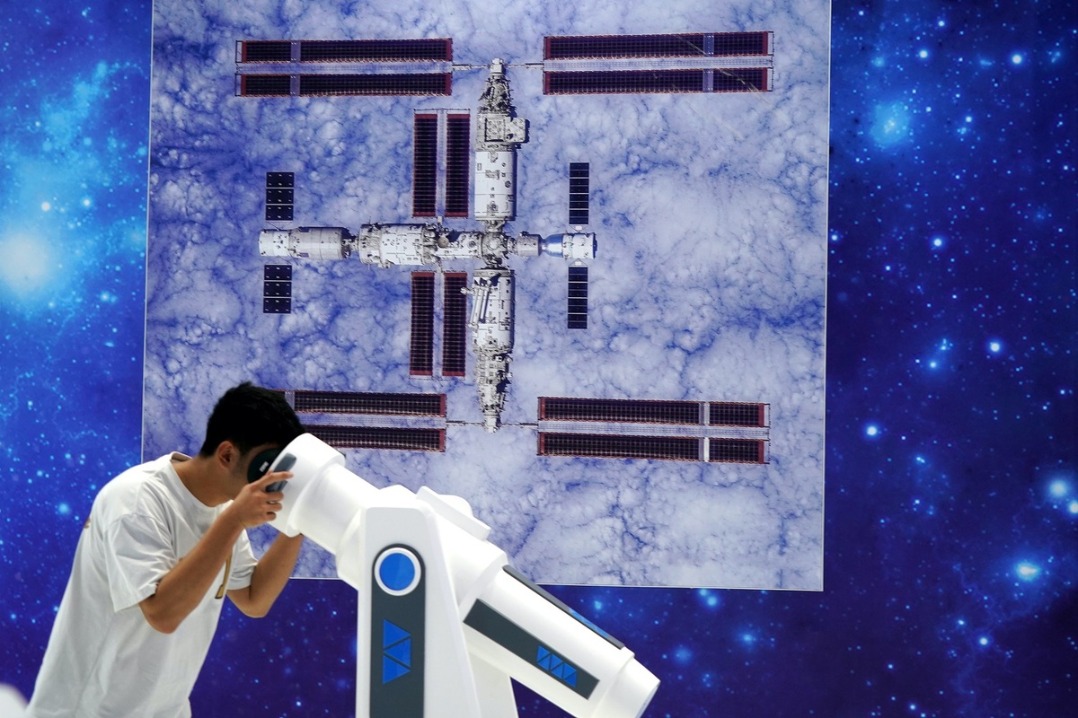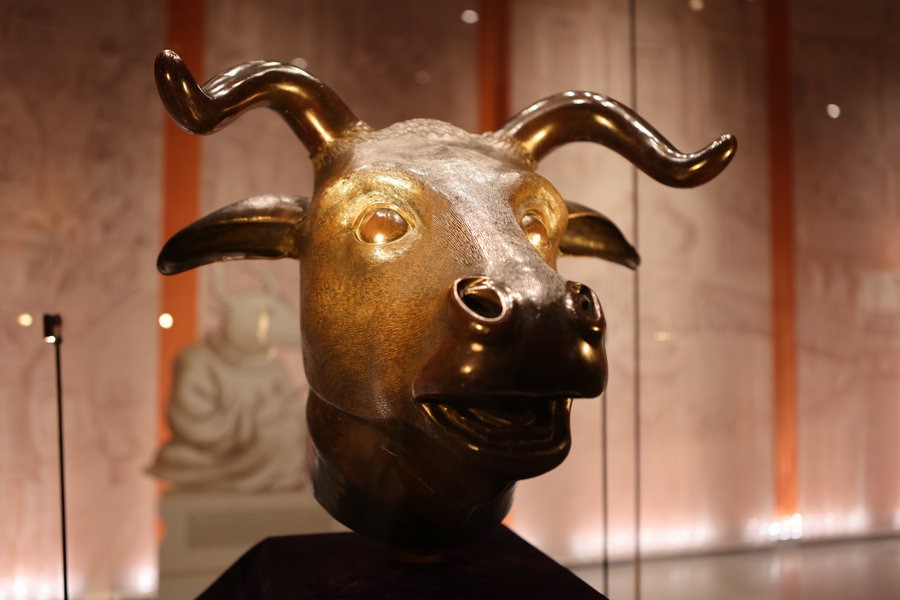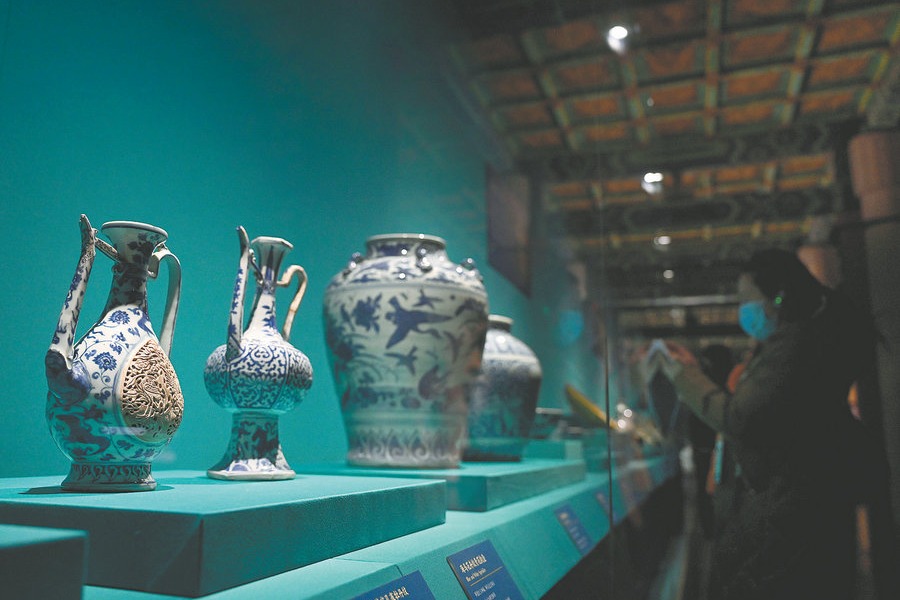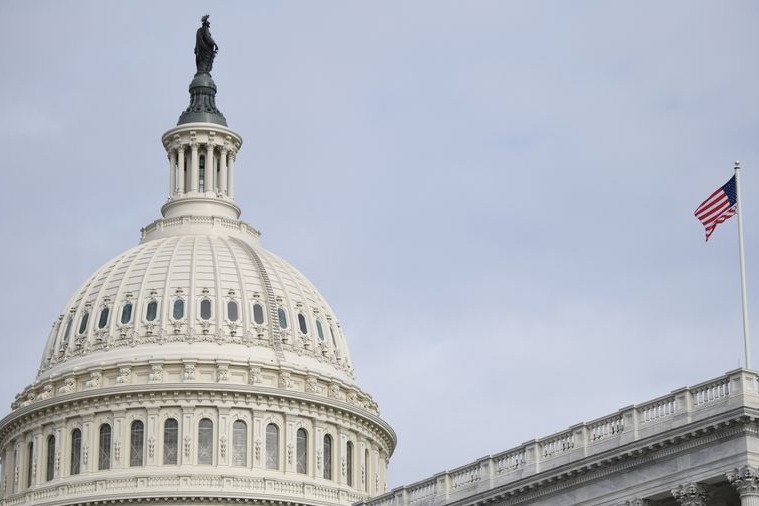Going further and farther to move China-US relations forward and up

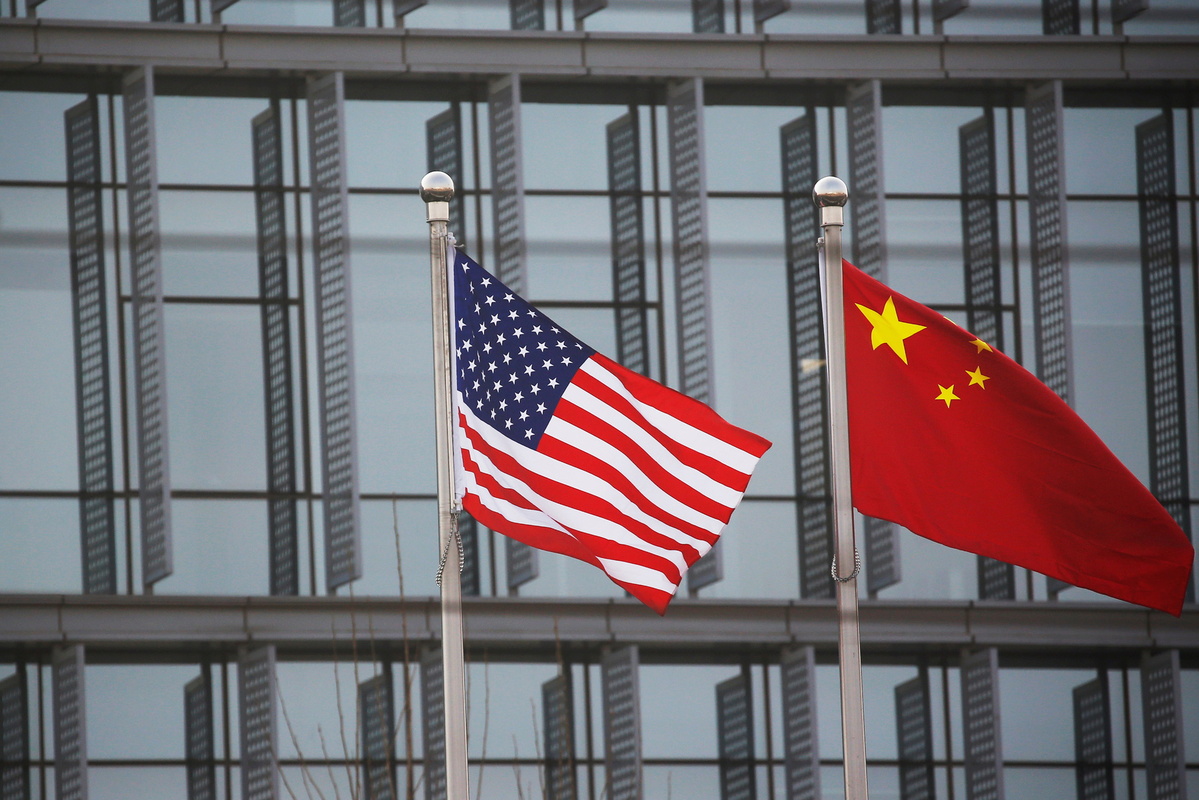
It was an honor. But in that moment, it was distressing. And it ended with a renewed sense of mission — and hope.
Former US secretary of state Henry Kissinger told me during the video interview I was hosting for China Daily's Edgar Snow Newsroom in early 2022: "It is important for humanity that China and the US have the greatest capacity to undermine order in the world. We will have many disagreements but work together on the basic principle that we will work for peace and order. And in the conduct of our relations with each other, we will work out the solutions on the basis of mutual respect and equality."
What he said later jolted my soul yet also revitalized my sense of purpose.
"The basic question between China and the United States seems to me to be this: Through the evolution of our societies, the two nations in the world have the capacity, economically, and by the magnitude of our efforts, to affect the whole world. We also have the technological capacity to produce a maximum degree of good that has never been imagined before but also a degree of devastation that has never been imagined before," he said.
"So, we have a special obligation to do something for which there is no precedent in history, which is the two nations of this magnitude, which usually would wind up in military conflict. Historically, it has led to military conflict.
"But our leaders on both sides, in both China and in the United States, have to be wise enough to understand that a military conflict between our two nations would bring about a degree of dislocation of the world, which would push what we have considered civilization to go back to an earlier beginning," Kissinger said.
The precise phrasing of that last sentence still makes me shudder.
Of course, I'd had this thought. And I knew he'd long had it, too.
For years, this very concern has animated much of my work, career and hopes to tell the real story of China in ways that resonate with international sensibilities.
This apprehension is exactly why, Kissinger explained, he was talking with us that day and advocating for this message rather than resting at age 99. He worked toward this goal until he passed away at age 100 in November last year.
To actually hear these warnings fall from his lips, as a statesperson so luminary that he's a household name throughout much of the world and as the individual who played a most crucial role in establishing China-US relations — to look into each other's eyes as he said these words made this existential warning real, and all the more chilling the destruction we could unleash with a miscalculation, misstep or mistake, perhaps created by a misunderstanding.
In fact, we were doing this interview — Kissinger speaking by video call as I hosted the conversation with him and his friend, China's former ambassador to the US, Cui Tiankai — largely because of how relations were unfolding. They were, indeed, at a low point.
To me, helping the world better understand China's realities — and especially to better enable relations between my birth land and adoptive country — is not just a job but rather a life mission. I was especially honored when Foreign Minister Wang Yi mentioned my mission at the ministry's news conference during the recent two sessions.
This calling is in service of a vision, shared by many — but, unfortunately, not all — for a world in which we, hopefully, at least avoid devastating conflict and, at best, cooperate to maximize human flourishing. Or, plausibly, we optimize "co-evolution" — the term Kissinger had minted to describe his conception of a lowercase-i ideal for capital-R Realism in terms of China-US relations across time.
Cui said, directing his words particularly to Kissinger but, more generally to me, and ultimately to all Americans and the whole world: "As there, honestly, have been some issues between China and the US, and, more recently, there are very dangerous things coming up, I think we do have a common goal that we are working together to enhance and facilitate mutual understanding between our two countries. If there are problems, we are trying to help to solve these problems."
Indeed, things were at an ebb then, as we commemorated the 50th anniversary of the signing of the Shanghai Communique, which Kissinger helped write with Chinese counterparts. This is the foundational document that paved the way for the establishment of China-US relations years later.
Days later, in 2022, I attended a ceremony where Kissinger and leading Chinese officials spoke by video call as well as in-person participants in Shanghai to commemorate the communique's signing in the exact room where it took place. Some of us then enjoyed the exact same lunch menu in the same restaurant as the countries' leaders and officials did during Nixon's 1972 visit. Over this meal, I joined other selected Americans to speak with Chinese officials about how to improve mutual understanding and relations.
Also present in the main meeting hall that day was Tang Wensheng, a charismatic woman of electric charm, who'd interpreted for Mao Zedong and late premier Zhou Enlai during the visits by Kissinger, Nixon and the US table-tennis team. She also worked with celebrated American journalist Edgar Snow and late Chinese leader Deng Xiaoping, before joining China Daily's editorial board and later working in diplomatic positions, including in the US.
I was reminded of her stories she'd shared in a video interview I hosted in 2022 again this year, when I was invited to meet the University of Virginia table-tennis team when they visited China. I was disappointed my schedule didn't permit me to attend the reception, given what their trip represents as a reflection of history but also as a symbolic prospect for our shared future.
However, I worry recent progress will encounter more exacting trials as the US revs up for an election year, and both Democrats and Republicans consider making overgeneralized declarations against China to be low-hanging fruit.
I've noticed a tendency of Chinese friends to perhaps focus too much on US presidential elections. I hope they could more clearly realize most policies, including nearly all related to China, are actually devised, and passed or struck down, by our congresses on the national and state levels.
To slightly oversimplify, it's the US legislature much more than the executive branch and its top leader — the US president, who does wield real power but perhaps even more so serves as a figurehead — who will draft and decide policies that advance or oppose such approaches as "decoupling", "de-risking", "containment" or even, in the worst scenario, military conflict. The potential TikTok ban perfectly reflects this actuality.
The US congress is elected by regular folks, by people like my relatives who I met during my last visit stateside.
As such, China needs to not only better tell its story to US business elites, academics and politicians but also to ordinary voters.
That includes salt-of-the-earth Americans like my aunts, uncles, cousins and in-laws, who farm corn, fix cars, hang drywall, drive semis, supervise forges and teach kids. They talk about China around bonfires, water coolers and cafe tables. And they will ultimately elect the officeholders, who at least should, generally, reflect their wills, including in terms of China-US relations.
As Kissinger put it to me on that day in 2022: "I don't blame either side for the difficulties that appear. In my country, the United States, I argue for understanding and cooperation with the others who have other views. I suspect in China, too, there are people who I have met who have similar overall views," Kissinger said.
"We have to see that the momentary disputes do not overwhelm us. I have not been happy that in recent years the momentary disputes might have taken precedence over the overall objective, and each side should look into itself to see what could be done."
These risks will inevitably intensify with this year's election campaigns. The questions then become exactly how and what transpires after.
Kissinger continued: "I hope that we will find a way to conduct our conversations. Of course, there'll be some differences, but we should try to resolve them with the understanding that no two countries in history have ever had this opportunity and this capacity.
"I think a contest between us and China will benefit nobody. There will be no winners …This is a great opportunity and a great danger."
Kissinger has passed away. But I hope his spirit of advocating for China-US relations lives on. May future generations learn from the wisdom of these past generations of diplomats like him, Cui and Tang.
Tang's words during our interview also particularly resonated with me and, I hope, a growing number of Americans.
"History will have its ups and downs. But eventually, it always goes forward. We just have to work for the better because that is in the interest of us all," she said.
"And the Chinese people want to be friends with other people in the world. They also have to know people who do this work, like yourself, how to explain China to others in a way that can touch their hearts and be truly understood."
Not only can we not turn our backs to each other, but I have seen during my 18 years in China that we as people can stand face to face and hand in hand, to see eye to eye and even heart to heart.
I don't know what will happen. But I do know what could — and should.
Most of all, I know what I will do — that is, in every sense, all I can do.
Erik Nilsson is a senior journalist at China Daily and a member of the media group's Edgar Snow Newsroom.
If you have a specific expertise, or would like to share your thought about our stories, then send us your writings at opinion@chinadaily.com.cn, and comment@chinadaily.com.cn.


















